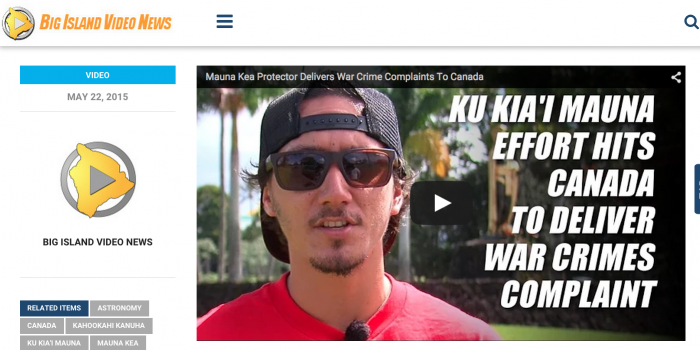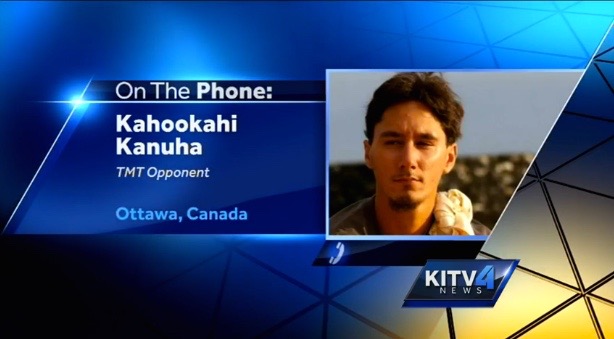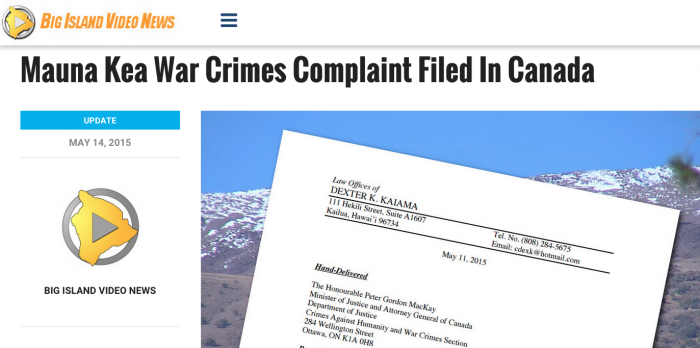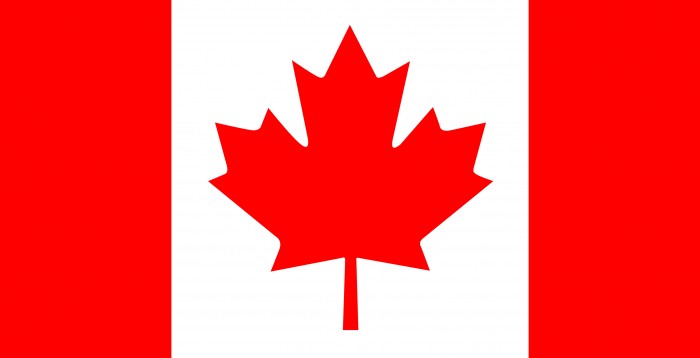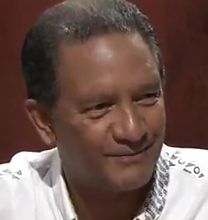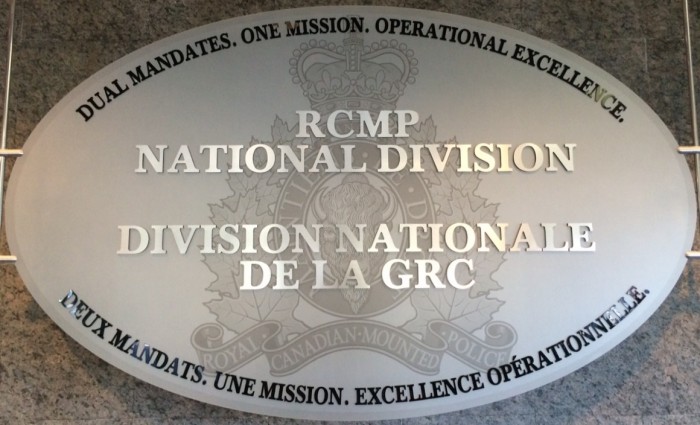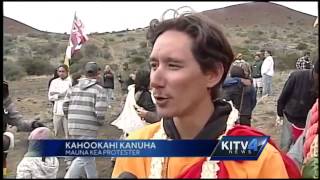In a cogent and thoughtful decision the Swiss Federal Criminal Court Objections Chamber recently issued two important and profound statements as to the sovereignty of the Hawaiian Kingdom. Although the Court held that, the filing was untimely and no longer appropriate in a Swiss Federal Criminal Court. The case has now been moved to the Criminal Law section of the Swiss Federal Supreme Court in Lausanne. These procedural issues do not diminish the two critical statements the Court made about the status of Hawai‘i.
Download Federal Criminal Court Decision (German) (translation to English)
First, the Court stated that the 1864 Treaty between Switzerland and the Hawaiian Kingdom was never canceled—and is still in effect. Second, the Court identified certain officials and former officials of the State of Hawaii by name as possibly subject to a continuing investigation as to alleged war crimes. Although the Court ruled the filing was untimely, the Court did provide a means by which the plaintiffs could obtain review in the Swiss Supreme Court.
Professor Williamson B.C. Chang, a law professor at the University of Hawai‘i at Manoa, called this statement by the Swiss Court “an extraordinary assessment of the status of Hawaii with enormous ramifications. It confirms my own views that the United States never acquired the Hawaiian Islands, either in 1898 or thereafter.”
Professor Chang also stated, “Indeed, the fact that the statement was made, given that there was no need to make such a statement, renders the statement even more significant. If Hawai‘i had been annexed then all treaties of the Hawaiian Kingdom would have become void.”
The U.S. congressional joint resolution that purportedly annexed Hawai‘i in 1898 during the Spanish-American War stated, “The existing treaties of the Hawaiian Islands with foreign nations shall forthwith cease and determine, being replaced by such treaties as may exist, or as may be hereafter concluded, between the United States and such foreign nations.” Obviously the Swiss Court was not swayed by the language of the joint resolution of Congress, and therefore concluded that the Hawaiian-Swiss Treaty was not cancelled.
To Professor Chang, the statement of the Swiss Court directly contradicts the official position of the United States as currently maintained by the United States Department of State, Office of the Historian, on its official website, “The McKinley Administration also used the [Spanish-American] war as a pretext to annex the independent state of Hawaii… At McKinley’s request, a joint resolution of Congress made Hawaii a U.S. territory on August 12, 1898.”
Second, and equally significant, the Objections Chamber of the Swiss Federal Criminal Court specifically named present and former State of Hawai‘i officials as well others who are defendants and alleged war criminals. Again, the Swiss Criminal Court dismissed on the grounds of untimeliness, nevertheless, the Court held that plaintiffs had a pathway to bring their claims before the Swiss Supreme Court. Thus, the actions of the Defendants will continue to be examined before that Court.
The naming of names is significant because the Court had no need to identify these individuals. Those named are the former Chief Executive Officer of Deustch Bank, Joseph Ackerman, the former Governor of the State of Hawai‘i, Neil Abercrombie, current Lieutenant Governor Shan Tsutsui, former Director of the Department of Taxation, Frederik Pablo, and former deputy Director, Joshua Wisch.
The Swiss criminal action began when the Swiss Attorney General received a war crimes report by Dr. Keanu Sai, as the attorney-in-fact for Mr. Kale Gumapac, a Hawaiian subject, who was a victim of war crimes in December 2014. Dr. Sai also represents another war crimes victim who is a Swiss citizen residing in the Hawaiian Islands, but his name is kept confidential for safety concerns. Prosecutor Andreas Muller from the Attorney General’s Competence Centre for Terrorism and Competence Centre for International Criminal Law initiated a war crimes investigation.
Prosecutor Muller abandoned the investigation on February 3, 2015, and Dr. Sai objected to the Swiss Federal Criminal Court Objections Chamber seeking an order to direct the Prosecutor to complete the investigation and proceed with the prosecution.
The Objections Chamber concluded they were prevented from hearing the objection because of a previous court case that stated if a private courier, such as FedEx, was used to submit documents to a court it would only recognize the date it was received and not the date it was postage marked. There was a 10-day period to object after Dr. Sai received the Prosecutor’s decision and report on March 23, 2015. The deadline to object was April 2, 2015. Although, the objection was sent via FedEx on April 1, 2015, it did not arrive at the Objections Chamber until April 8.
“When I received the Prosecutor’s report I needed to get it translated into the English language in order to draft the objection,” said Dr. Sai. “Once I got the translation, I wrote the objection, which was 12 pages, and then I proceeded to get it translated into German before sending it off. After the translation was completed on April 1, I immediately went to FedEx.” At the request of Dr. Sai, the Clerk of the Federal Criminal Court forwarded the case to the Federal Supreme Court in Lausanne.
In a letter (German) (translation to English) to Dr. Sai from the Criminal Law Section of the Federal Supreme Court dated May 21, 2015, the Clerk of the Court stated the Supreme Court will accept the case if Dr. Sai would “explicitly state by June 5, 2015 that the Federal Supreme Court should accept and treat [his] submission as an objection in criminal matters.” As directed, Dr. Sai drafted a letter dated May 24, 2015 (German) (translation to English), which stated “I hereby explicitly state that the Federal Supreme Court should accept and treat my submission in the above case as an objection in criminal matters pursuant to the provisions of the Federal Supreme Court Act (BGG) of June 17, 2005.” Dr. Sai’s letter arrived in Switzerland by a personal courier and mailed to the Supreme Court through the Swiss postal service on May 28, 2015, which met the deadline of June 5.

